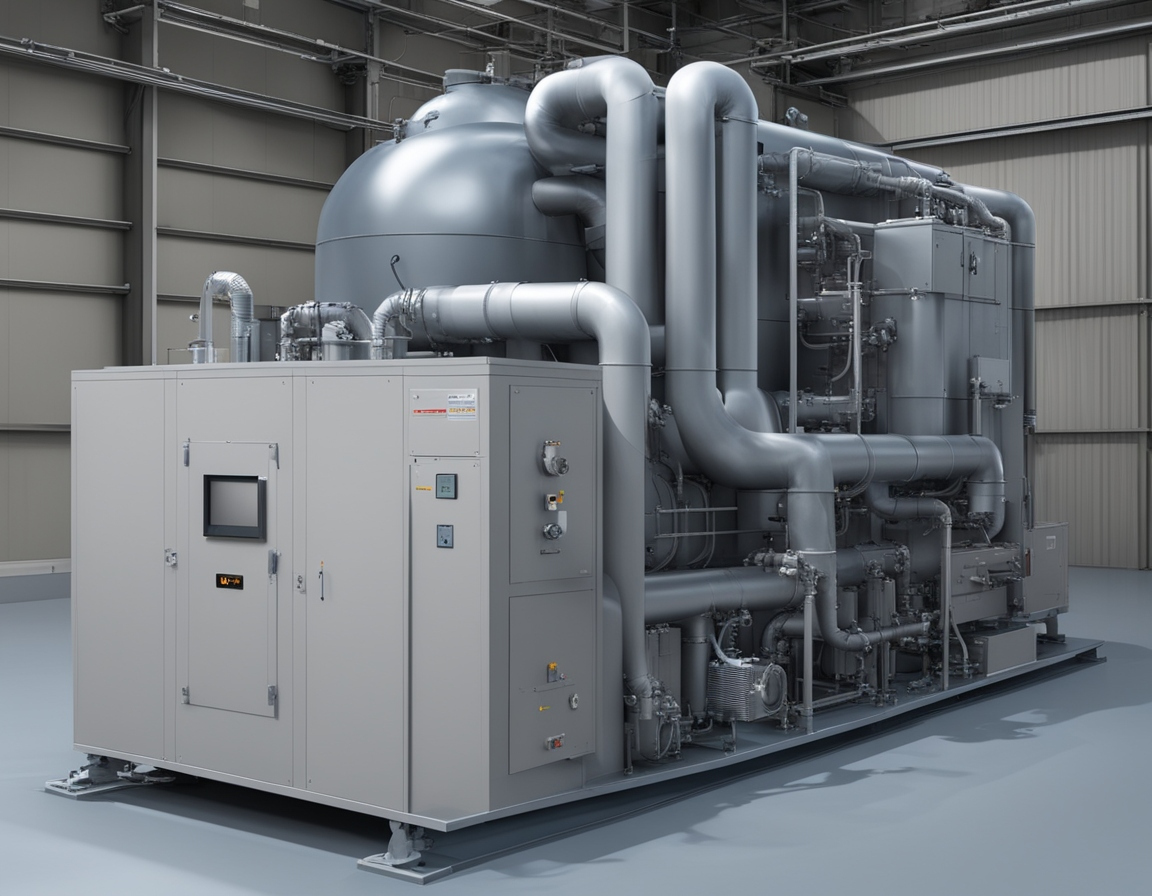
Real-World Applications & Future of Absorption Chillers
Introduction:
Absorption chillers have gained traction in various industries due to their ability to utilize waste heat and renewable energy sources for cooling. Unlike conventional chillers that rely on mechanical compression, absorption chillers use chemical absorption cycles, making them more energy-efficient and environmentally sustainable. This article explores their industrial applications, integration with renewable energy, recent advancements, and challenges that lie ahead.
Industrial and Commercial Applications:
Absorption chillers are widely used across multiple industries due to their low operational costs and ability to function using alternative energy sources. Some key applications include-
• District Cooling Systems: Large-scale absorption chillers provide centralized cooling to multiple buildings, reducing reliance on electrical grids.
• Data Centers: Absorption chillers help repurpose excess heat from servers, enhancing energy efficiency and reducing cooling costs.
• Chemical and Pharmaceutical Industries: These sectors require precise low-temperature cooling, making ammonia-based absorption chillers a preferred choice.
• Hospitals and Hotels: By integrating with combined heat and power (CHP) systems, absorption chillers efficiently supply both cooling and heating.
Integration with Renewable Energy:
One of the most promising developments in absorption chiller technology is their compatibility with renewable energy sources-
• Solar Cooling Systems: Solar thermal energy can be used to power absorption chillers, reducing dependency on fossil fuels in hot climates.
• Geothermal Energy: Absorption chillers can utilize low-grade geothermal heat to produce cooling efficiently.
• Industrial Waste Heat Recovery: Large industrial plants can recycle excess process heat to drive absorption chillers, improving overall plant efficiency and sustainability.
Integration with Renewable Energy:
One of the most promising developments in absorption chiller technology is their compatibility with renewable energy sources-
• Solar Cooling Systems: Solar thermal energy can be used to power absorption chillers, reducing dependency on fossil fuels in hot climates.
• Geothermal Energy: Absorption chillers can utilize low-grade geothermal heat to produce cooling efficiently.
• Industrial Waste Heat Recovery: Large industrial plants can recycle excess process heat to drive absorption chillers, improving overall plant efficiency and sustainability.
By integrating these technologies, absorption chillers contribute to a greener and more energy-efficient future.
Innovations and Future Trends:
Recent advancements in absorption chiller technology have focused on improving efficiency and adaptability. Some notable innovations include-
• Nano-fluid Enhanced Heat Exchangers: The use of nano-fluids significantly improves heat transfer rates, enhancing overall system performance.
• High-Efficiency Absorbents: New absorbent materials with higher solubility and lower crystallization risk are being developed to enhance operational reliability.
• Modular and Scalable Designs: Smaller, modular absorption chiller systems are being designed for flexible and scalable commercial applications.
These developments are expected to increase the adoption of absorption chillers in a wider range of industries.
Challenges and Future Outlook:
Despite their numerous advantages, absorption chillers face several challenges-
• High Initial Costs: The upfront investment for absorption chiller systems is higher compared to conventional chillers.
• Space Requirements: These systems require larger installation areas, which may not be suitable for all applications.
• Performance in Variable Load Conditions: Absorption chillers perform best under steady-state operations, requiring careful load management.
Looking ahead, continued research and development in absorption chiller technology, along with government incentives for energy-efficient cooling solutions, will drive their adoption in the coming years. As industries transition towards sustainable energy solutions, the role of absorption chillers in reducing carbon footprints and operational costs will become even more significant.
Conclusion:
Absorption chillers represent a viable alternative to conventional cooling technologies, offering energy-efficient and eco-friendly solutions for industrial and commercial applications. With advancements in refrigerants, hybrid systems, and integration with renewable energy, their adoption is expected to rise. While challenges exist, the future of absorption chillers remains promising, paving the way for a more sustainable cooling industry.
Contact Us now to join the revolution!
